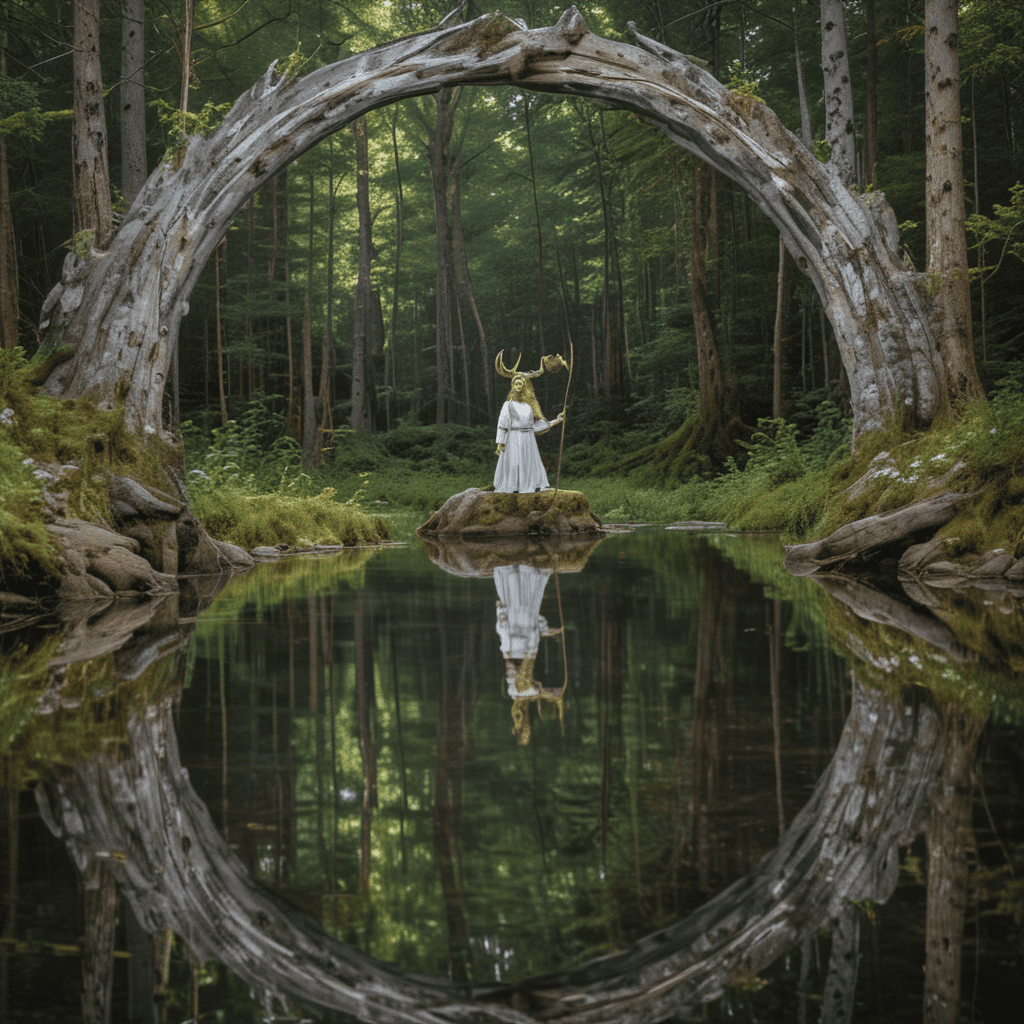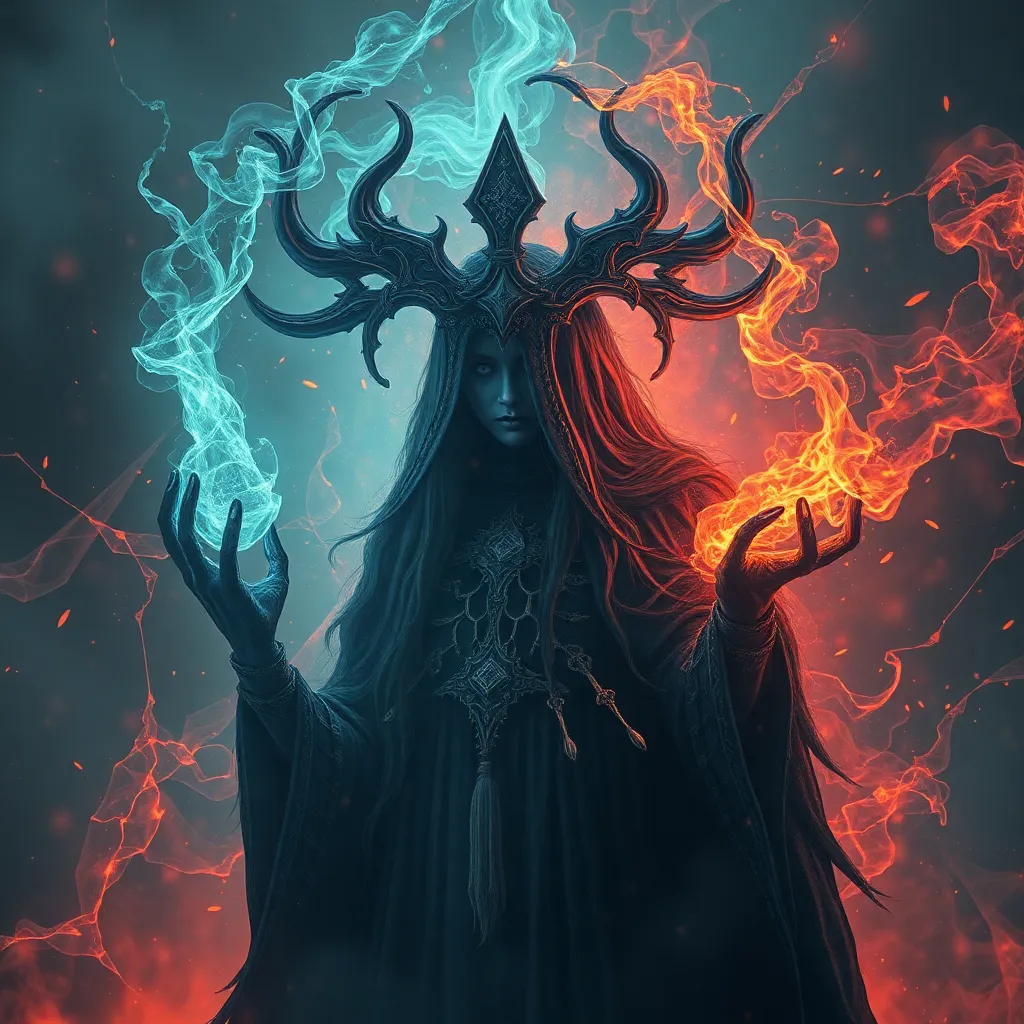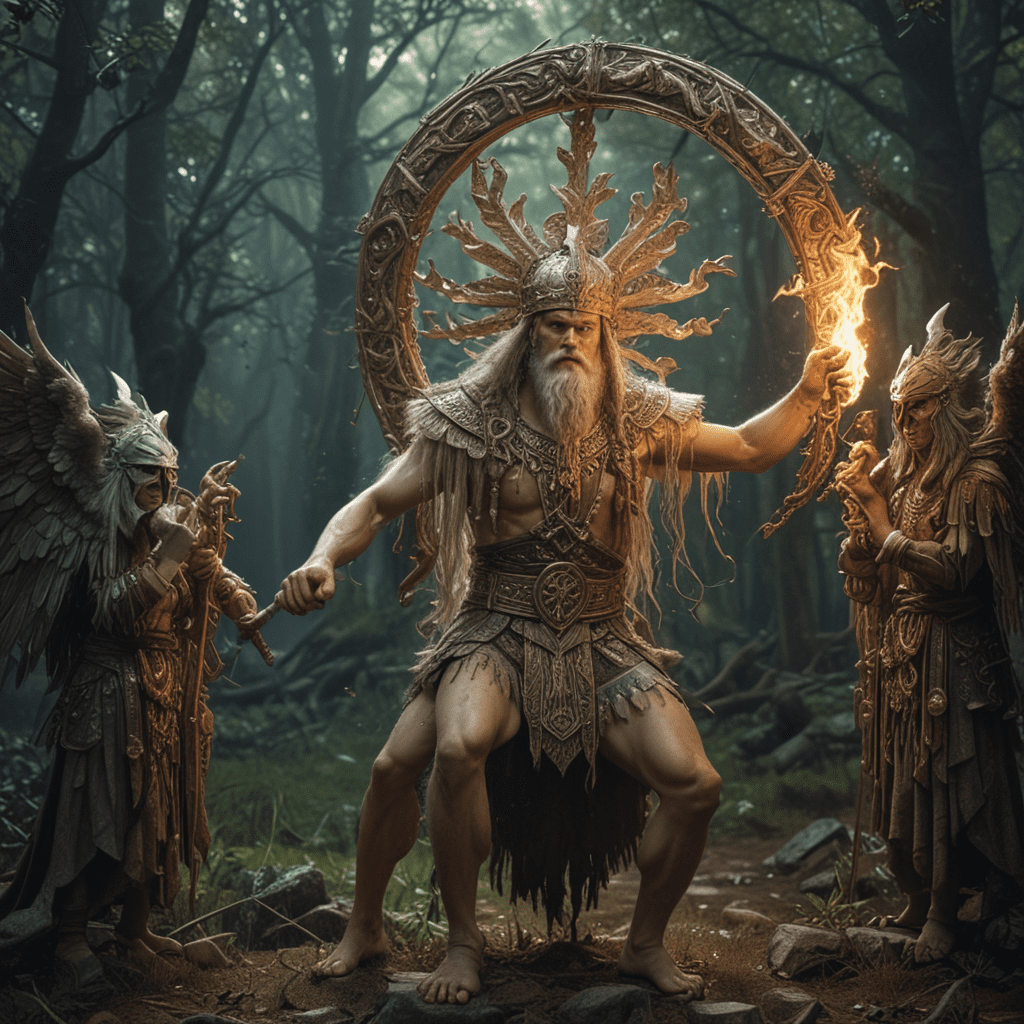The Symbolism of Reflection in Finnish Mythology
I. Introduction
Reflection holds profound significance in Finnish mythology, entwined with the supernatural, the underworld, and the concept of transformation. From mirror images to water nymphs, reflections embody portals to other realms, tools for divination, and metaphors for the elusive nature of the self.
II. The Nature of Reflection: Mirror Images and the Supernatural
In Finnish folklore, mirror images possess an otherworldly aura, believed to mirror not just the physical but also the soul. Reflections served as windows into the supernatural, where individuals could confront their inner selves or encounter supernatural entities. The mirror's surface acted as a liminal space, blurring the boundaries between the natural and the supernatural.
III. Reflection as a Gateway to the Underworld
Water bodies such as the Tuoni River and Lake Pohjola held a sacred status in Finnish mythology, linking the living world to the realm of the dead. Reflections in these waters served as gateways to the underworld, enabling souls to cross over or communicating with the departed. The reflection of a living person hovering above the water signified impending death.
IV. The Mirror as a Tool for Divination and Magic
Mirrors played a central role in Finnish divination and magical practices. Shamans utilized mirrors to glimpse the future, foretell events, and communicate with spirits. The mirror's ability to reflect light and images was seen as a powerful force that could be harnessed for both good and evil.
VI. Reflections and the Concept of the “Other”
Echoes and doppelgangers played a significant role in Finnish mythology, often linked to reflections. Echoes represented the disembodied voices of the dead or supernatural entities, while doppelgangers embodied the duality of one's being. These mirror images served as both reflections of the self and harbingers of misfortune or change.
VII. Reflections as a Metaphor for Transformation and Rebirth
Reflections symbolized transformation and rebirth in Finnish folklore. Water bodies, particularly lakes and rivers, were seen as sacred sites where individuals could undergo spiritual cleansing and renewal. The act of gazing into a body of water reflected a desire for change or the shedding of one's past.
VIII. The Mirror and the Kalevala Epic
The Kalevala, Finland's national epic, features significant instances of reflection and mirrors. Väinämöinen, the central character, encounters his reflection on multiple occasions, which serves as a symbol of introspection and the consequences of his actions. These instances highlight the power of self-reflection and the transformative nature of confronting one's true self.
IX. Reflections in Modern Finnish Literature and Culture
The symbolism of reflection persists in modern Finnish literature and culture. Finnish authors, such as Frans Eemil Sillanpää and Mika Waltari, have incorporated reflections into their works to explore themes of identity, duality, and the interplay between the natural and supernatural. In contemporary Finnish culture, mirrors remain significant symbols, often featured in art, design, and everyday objects.
X. Conclusion: The Enduring Significance of Reflection in Finnish Folklore
In Finnish mythology, reflection held immense significance, intertwined with the supernatural, the underworld, and the concept of transformation. From mirror images to water nymphs, reflections represented portals to other realms, tools for divination, and metaphors for the elusive nature of the self. The enduring presence of reflection in Finnish folklore and culture speaks to its universal appeal and the human fascination with the interplay between reality and its mirror image.
FAQs
Q: What is the symbolism of reflection in Finnish mythology?
A: Reflection in Finnish mythology represents gateways to the supernatural, tools for divination, metaphors for transformation, and the concept of the "other."
Q: How were mirrors used in Finnish mythology?
A: Mirrors were utilized for divination, magic, and as symbols of introspection and the consequences of one's actions.
Q: What is the significance of water bodies in Finnish mythology in relation to reflection?
A: Water bodies were considered sacred sites and were believed to facilitate spiritual cleansing and renewal, often represented by the act of gazing into them.
Q: How does reflection relate to the concept of the "other" in Finnish folklore?
A: Reflections in Finnish mythology represent the duality of one's being, including doppelgangers and echoes, and embody the interplay between reality and its mirror image.



